Get posts by email
Show and Share Supper
May 17, 2013
My children live in the world of fantasy; the world of Middle Earth and Araluen. They walk the land of wizards, orcs, kobolds, and rangers. They strategize in the worlds of Neverwinter Nights 2, Baldur's Gate, and Pathfinder.
They speak the language of bestiaries, hit points, and armor class. They build with cobblestone, redstone, and sticky pistons. And they write stories, characters and plots; draw pictures and make art, about these worlds.
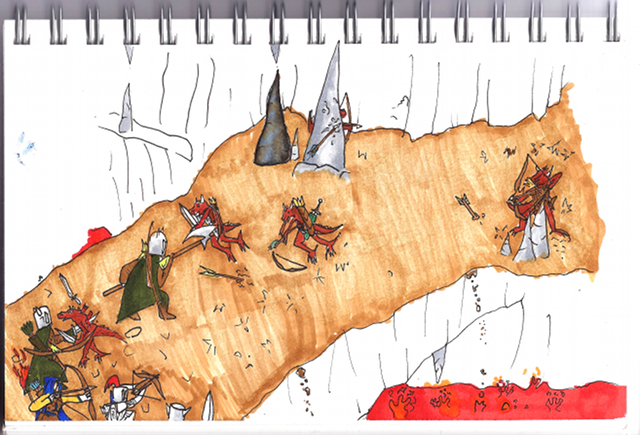
My children have active, vivid and fantasy-world driven imaginations.
And so I spend my days learning about things that don't exist, being told of campaigns and characters. I have started gaming myself so I can understand a bit of this world that fascinates them so much. This world that captures their imagination and takes them places I have never been and that frankly, don't exist.
For the most part, this is all fine and dandy. We don't limit our kids interests to the things we parents know and love. In which case my kids would be little clones of me and we'd all talk about beauty and nature, homeschooling, and blogging. Or little clones of Damien, talking about shoes, science, and technology.
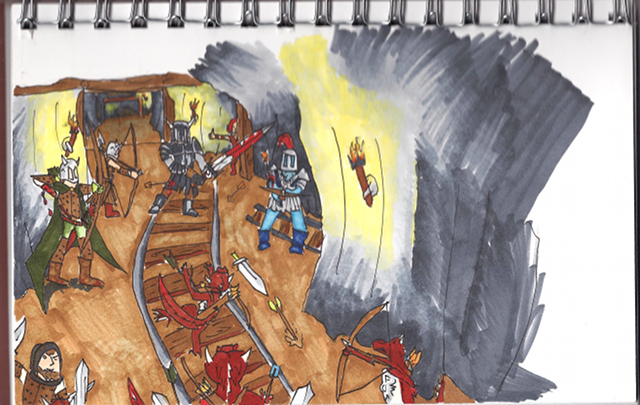
We like being individuals sharing a loving and supportive family life. And we support our children's fantasy interests; Céline's whole curriculum right now is about building a fantasy world and game. We are totally behind our kids, but there is a limit, and we reached it.
Our supper time fantasy table talk was becoming tedious. It was time to re-engage with the "real world".
Supper is a key coming together point in our day. It's funny, we share our living space all day, but we're busy - with school, play and work. Things happen in our day that we don't have the time or energy to share until we sit down to eat a meal.
Increasingly our supper meal was being taken over by the fantasy realm my children live in. Damien and I were starting to wonder, "have our children experienced anything from the real world today?"
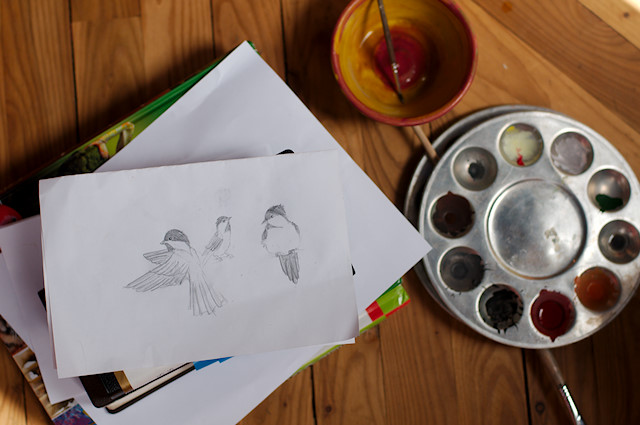
Of course they had, they just weren't coming to the table ready to share that. They were defaulting to what came easily and naturally - their fantasy interests.
But as fascinating as fantasy is to our children, it isn't always so fascinating to us and we didn't want to spend our supper living in another world. So we instituted "real world" supper conversations. Specifically show and share supper (I just made that phrase up right now).
Since kiboshing the fantasy talk at the supper table we had to give our children something to fill the void. They wondered, "if we can't talk about our characters, our hit points, or the beasts we slayed today, what can we talk about?" (I know, what else is there?!)

Here's what we told them, "come to the table with something you learned today."
You know the classic, "what did you learn at school today son?" To which the son replies, "nothing".
That's kind of what show and share supper is about, but "nothing" is a no-go response of course.
We all participate and the only rules for what you share are that 1) it has to be based in reality and 2) should be something that other people can relate to.
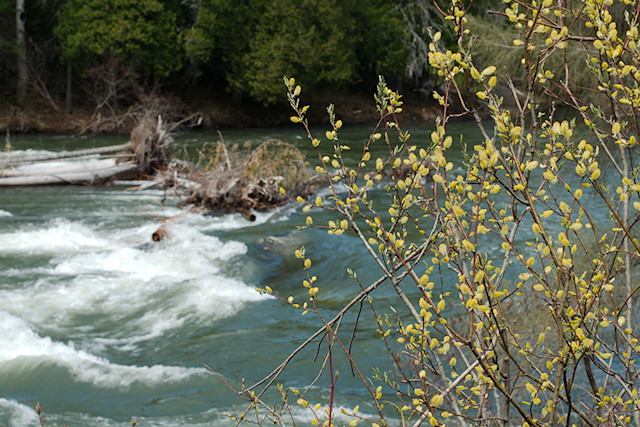
We're all very unique individuals with diverse interests. We need to keep our audience in mind when bringing something to the table. Damien is learning things all the time that are way over the kids heads and I am learning things all the time that no one cares about (blogging related things for example). We try to share something that other people can relate to. This is actually an important social skill.
Show and share supper has been interesting. We're sharing things we've learned that day, or recently, about history, science, nature, art, language, and more.
The younger two are actively looking throughout the day for something to add to the conversation. They're serious about this. And they are expanding their horizons a bit beyond their fantasy pre-occupation. Céline usually brings something to the table from her self-directed studies that day.

Recently, for show and share supper Brienne gave us a mini-presentation on coltsfoot (an easily identifiable spring herb) and I talked about Harlequin ducks. (Did you know their summer habitat is turbulent mountain streams and where we live on the Gaspe peninsula is one of the few eastern regions you'll find them in summer? I saw a mated pair on my morning run.)
Céline shared her insights and enthusiasm for medieval Japanese puppetry (part of her research for the fantasy world she's building) and Laurent gave a presentation on the manufacturing of electric cars (summarizing what he'd learned in a Nature of Things episode).
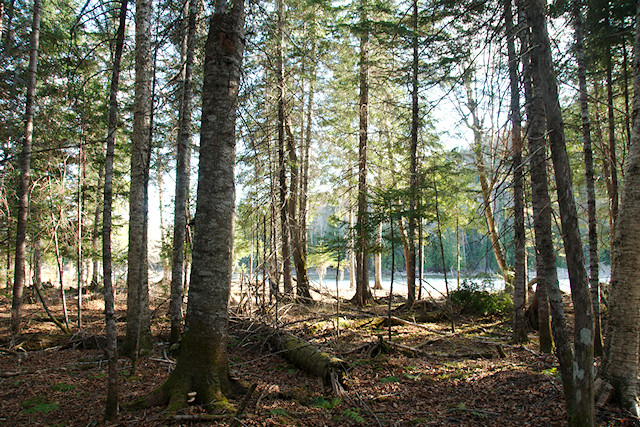
Just the other night, the discussion was all things salamanders, inspired by an afternoon of science. (This is a fabulous documentary by the way. Highly recommend.)
Out came the books and the iPads, complete with creepy photos of amphibians bigger than your dog (gives me the weeby-geebies).
You'd be amazed the amount of "school" that is covered in these discussions. And what is especially fun for me is when my kids come to the table with something I did not teach or facilitate. Laurent giving a presentation on electric cars for example, leading into a post-supper conversation about photosynthesis. Brienne, I found out, hadn't learned about this yet so Wednesday night at 8:30 pm was good a time as any.
Some people wonder, "what does interest-led learning look like?"
In our home, interest-led learning looks like letting our kids live in a fantasy world. And then pulling them out from that world now and again to share what they know from the real world.

It looks like learning to give oral presentations and reading poetry around the supper table, fielding questions from family.
It looks like everyone bringing something to the table, because they want to, because it interests or intrigues them. And it looks like spin-off discussions in new and interesting directions based on what you've just found out.
It's not that complicated, it's quite simple really. As simple as a show and share supper.
Resource Library
-

Jenna on May 17, 2013, 4:54 p.m.
I love this idea. Our dinner conversations are based on what my husband has researched and learned to improve himself. My five year old and three year old don't remember much about their school day. But if I shared with my husband something new that I learned that would be good. He is always sharing and I need to reciprocate. Thanks for sharing.
-

Jamie {See Jamie Blog} on May 17, 2013, 4:59 p.m.
This is interest-led learning at it's finest. I love reading how you do things; it feels more balanced to me than the way many other homeschool families do it. I'm still finding the right balance, so thanks for sharing. And the Show and Share suppers are a fabulous idea!
-

renee on May 17, 2013, 8:11 p.m.
You know Jamie, I think we're all trying to find the balance (smile). I'm working towards it, every day. I'm still learning how to hold my educational ideals lightly (and even my thoughts for what constitutes a "good" education) and hang on fiercely to what really matters; which is building strong relationship with each other and a love for learning. It seems like every day I'm answering the question "what does this look like for us today?". I think trying to find your way puts you in good company.
-
-

Wendy on May 17, 2013, 6:53 p.m.
Awesome!
-

Kika on May 17, 2013, 7:25 p.m.
Great video! Ella and I just watched it together. Also, sometimes I think my son spends more time thinking about & discussing alternate realities than this one;)
-

renee on May 17, 2013, 7:45 p.m.
Kika, you know what I liked about that video was that it wasn't so environmental doomsay. There was a the last little bit at the end but it was minor.
Laurent is a sensitive soul and he gets discouraged with all the doom and gloom that usually accompanies nature documentaries, and he loves nature documentaries. And he's totally a nature kid, loves animals, etc.
I think it's imporant to raise children with an age appropriate awareness of environmental issues, and certainly we talk about them a lot as family. But so many documentaries are ALL about climate change with a strong "it's the end of the world as we know it" vibe. And maybe it is, but this is not a message I want drilled into my children, whereby they lose their hope and optimism that they can make a difference.
It's a hard line to walk. To raise our kids with an environmental ethic and strong sustainability mindset without the hopelessness and sensationalism that can accompany that message.
-

Kika on May 17, 2013, 11:42 p.m.
What you are saying reminds me of food or health documentaries - so many are fear based or very conspiracy theory-based...and it is not that I would disagree with them even but rather than instill fear (in myself or others) I'd like to watch videos or discuss articles with my kids that inspire us toward caring for our bodies and planet; fear-mongering rarely has that type of lasting positive effect (or affect?!).
-
-

Sarah on May 18, 2013, 12:32 a.m.
There is definitely WAY too much "doom and gloom" in many books and movies about many things--often things my generation will have to contend with. I think that it is important that we understand (to a limited extent) the problems we are facing--at least, that we understand them in due time. But most importantly, I agree that the MAIN purpose of these should be to inspire us to feel "hope and optimism that [we] can make a difference." That's the important part--that we are working towards solutions!
-

Lori on May 21, 2013, 4:22 a.m.
I am with you on this! Years ago, before kids, I was a classroom teacher. It bothered me that so much emphasis was placed on "saving the rainforest" and earth day. The reason is that I thought these topics were too big for kids to do much about, and they raised fear in these young souls.
Kids should get to love the outdoors; then they will naturally care about trees. Despite my own best efforts as a homeschooling mom to protect my kids from topics I disagree with, my kids hear so much of this propaganda anyway. It's just out there.
I am a nature loving, real food eating person myself, but I want these things presented in a positive way, without the intent of depressing my kids.
-

renee on May 21, 2013, 11:51 a.m.
I hear you.
-
-
-
-

Nana on May 18, 2013, 1:46 p.m.
What a marvelous idea. I can't wait to be at your table, and determine what thing I learned in my day to contribute to the conversation.
-

Rana on May 19, 2013, 11:48 p.m.
I like this idea. We may have to try something like it at our table.
-

Lisa S on May 20, 2013, 4:26 p.m.
I totally understand this, and I've had to do some similar limiting of conversations. I love that my children have such active imaginations and can come up with such intricate play, but sometimes a change of topic is in order.
What I really want to comment on, though, is the fact that you saw Harlequin ducks on your run. Color me jealous! I love harlequins. I saw a pair once when we were in Yellowstone and it was a highlight for me. I still remember exactly where we were.
-

Catherine Forest on May 21, 2013, 4:08 a.m.
I LOVE this Renee. Our girls are really caught up in a serie from our childhood they are watching (Les merveilleuses cités d'or, would be great for your crew to learn French) and I might give that idea a try.
You can subscribe to comments on this article using this form.
If you have already commented on this article, you do not need to do this, as you were automatically subscribed.
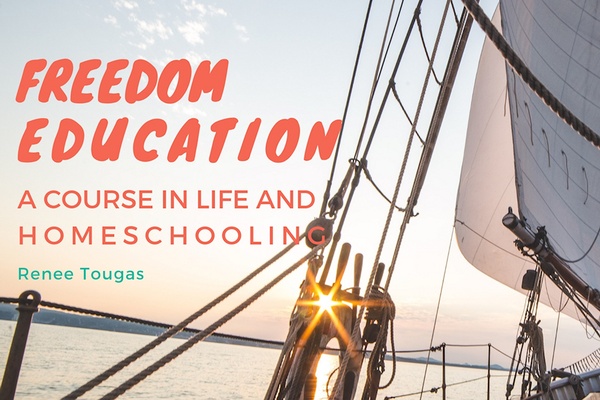
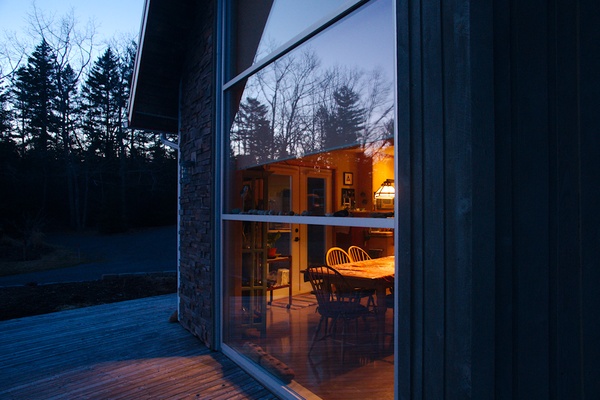
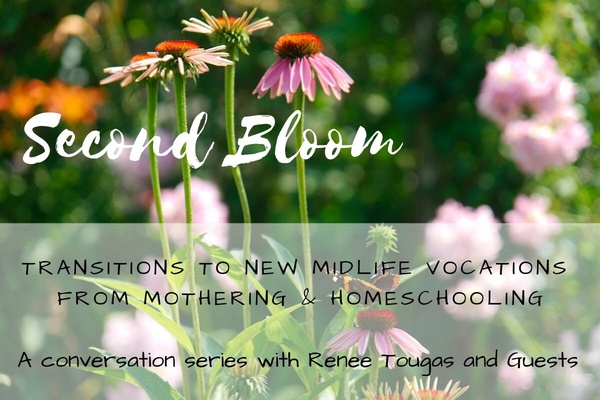

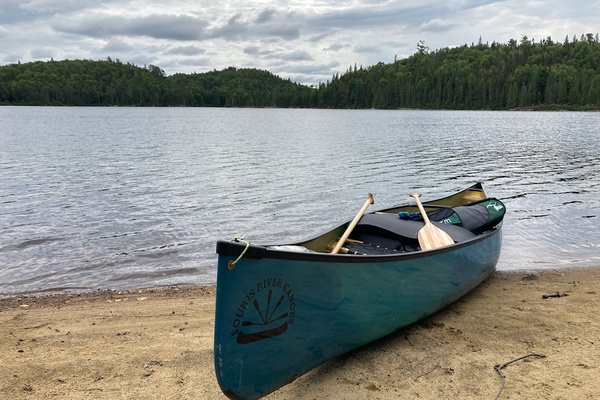
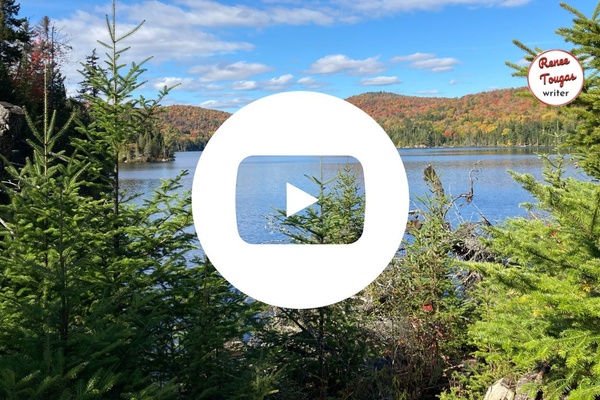
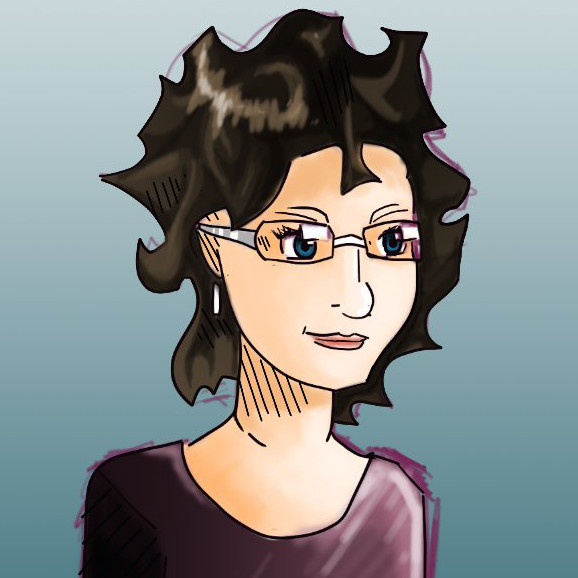
Tonya on May 17, 2013, 2:03 p.m.
I read this aloud to my children as we are continually going back and forth about their "fantasy worlds" - thanks for the discussion.
renee on May 17, 2013, 2:31 p.m.
Tonya, your kids have fantasy worlds also? That's encouraging to hear. I am such a literal, concrete person and I don't remember even liking fantasy books as a kid. I have a hard time relating and also I wonder, "is this ok?" That constant questioning of a parent (smile).
Yet Damien loved fantasy and sci-fi books and movies as a child and young adult. And he's been the one to introduce a lot of that world to our kids; which wasn't that big of a leap from their early years fascination with fairies.
Sarah on May 17, 2013, 7:24 p.m.
So interesting--although I've had friends who've enjoyed fantasy (sci-fi was ok as long as the focus was on the characters and their dilemmas/relationships... if too much was spent describing the "world" a book was set in I didn't like it)... I have a hard time relating, too. I really don't like those genres and considering that for grades 4 (when I really began to read) through 7 or 8, all I talked about with my friends was books... it was sometimes hard (by "hard I mean I would get frustrated by that type of conversation). Luckily, they also liked to read realistic fiction and nonfiction, too! All that is to say... I get it!
I do think that children's intense focus on a particular thing/subject ("obsessions") are really interesting, though. Although I wasn't really one to get too "into" a particular subject/topic (at various points I did love art, or barbies/baby dolls/american girl dolls, or paleantology but not the the extent that many children get into things), a lot of the people I know who did get "obsessed" when they were younger are super interesting people now.
Also, on another topic, if Laurent is interested in electic engines/cars (especially in regards to the physics of energy) he should definitely explore this (http://www.teslamotors.com/goelectric#). Yes, it is about a fancy sports car but it has a lot of information about electric fuel. Also, my dad has worked in renewable energy... so if he's interested in that as a broader topic... I'd be happy to hook them up (if he wants to find more resources, ect.) Specifically, my dad was researching geothermal energy (so thats what he knows most about). Sorry, those were a few big leaps from a dinner conversation... but you never know what people might get interested in :).
renee on May 17, 2013, 8:16 p.m.
Thanks Sarah! Much of my kids' learning is what I call "launch pad" or "springboard" type learning. An interest is sparked from something we read or watch and we launch into a whole area of study. So yes, you never know waht people might get interested in.
Also, I love hearing how you didn't really start reading in earnest (or at all?) till grade 4. That should be encouraging to many of the homeschool moms who hang out here. So many parents panic if their kids aren't reading well by age 6 or 7 and that fear is just really unfounded in light of many child development theories.
Did you have a waldorf elementary education? I know you're in high school now.
Sarah on May 18, 2013, 4:14 a.m.
Hello! I ended up writing multiple paragraphs to reply (I know, it was such a simple question :)! ...so I am sending you an email instead. I dont want to take up all the comment space here!
renee on May 18, 2013, 1:14 p.m.
either is fine with me Sarah!
Sarah on May 18, 2013, 4:08 p.m.
Oh wow, I could write a lot about my learning (and learning to read). I posted on this (http://fimby.tougas.net/homeschooling-and-dyslexia--my comment is last) with a bit of my opinions on labeling... Don’t worry if you never get to the end of this one—this is long and I understand that you’re busy!
There are two responses I want to make-- one is that I believe those child development theories that say that children learn (to read, to spell, to recite math facts) at different times. I 100% believe that it is 'ok' for children to not be able to read at 6 or 7.
I didn't go to a Montessori school (although I do love what I know about Montessori education! One of my best friends went to a Montessori K-6 and she really is the most (verbally/analytically) intelligent, intellectual, and thoughtful person of my age that I know. (And, just if you're curious, she came into 6th grade at a rigorous school having never done any homework and she now goes to a very rigorous high school... and she has never gotten below an A. I don't like to say that grades=success, but in terms of proficiency with assigned material and ability to exhibit that on assessments, not having homework did not hurt her one bit!)
However, in my case, it wasn't just that I was slow to learn to read.... or understand basic math concepts. (Or that I took 10x longer than my classmates on EVERY assignment--especially anything involving creativity or art.) Luckily, I had an incredible 1st grade teacher who saw that I was having a hard time with the material we were learning in class (my brother, also dyslexic w/ AD/HD didn’t have any teachers detect it until 5th grade... after struggling for years. That's what you get for being a well-behaved boy! ...but that's another rant). I also went to a school that, although imperfect, provided me with incredible resources and tutors. Honestly, I was not able to read in 3rd grade because my brain had just developed more (although I wish it was just that!)... I truly believe that it was because of the extra practice--about 1.5 hrs, two days a week, spent out of the classroom with a special tutor. I forget the name of the program I used but if I come across it, I’ll let you know. I am also SO grateful because I never remember feeling bad about being unable to read. I have friends who say, "yeah, public school isn't perfect but it worked well enough for me." Honestly, I am so so glad I was not in ps in elementary. I know that if I hadn't gotten extensive extra support (which was not extra cost on top of the tuition for my private school) I would not enjoy school the way I do today. I don’t want to imply that a person who doesn’t learn to read when I did won’t enjoy school. What I mean to say is that if a child is in an environment where reading is important to understand the material and be able to learn about topics of interest, then learning to read slowly or late might make it difficult to enjoy school—it’s all about environment, resources, etc.
I say “it wasn’t just my brain developing” because I still struggle with tasks that I shouldn’t, considering my verbal and logical reasoning. I have been tested and have slow visual and auditory processing and difficulty with rote memory. That is why it took me a lot of extra practice to learn how to read… sight words wouldn’t stick! (By now you may be thinking… “you don’t have dyslexia”… and you’re right. In a way, I don’t.) I don’t mix up letters or flip things in my head… and I don’t have the strengths that many with dyslexia have—for example, my spatial reasoning is terrible. However, because of all the gosh darn bureaucracy, there is no label for slow processing (although it is an accepted phenomenon by most psychologists). And because my slow processing affects my reading, it is labeled as dyslexia (and inattentive AD/HD, also not what I actually have… but a label that covers some of my learning/behavioral style and gets me the extra time I need). Even today, when I get extra time my scores on standardized tests rise 50% and my percentile rises about 30%! It just goes to show how little standardized tests can tell you.
Okay, so back to the 4th grade part. I technically could read some in 3rd grade. Technically. However, it was still a struggle and I still had very few words in my “sight-word bank.” So I didn’t enjoy reading until well into 4th grade…. And then my reading took off! I LOVED reading (and discussing) books through 4th, 5th, 6th and 7th. It has been more difficult to fit it in as I get older (I still read quite slowly), but I have replaced it with other cherished pastimes (so I cannot say “I don’t have time to read”… it’s just that I don’t have time to read much on top of other activities I choose. Plus, I read a lot for school.)
No need to read on if you don’t want to hear me toot my own horn a bit. Despite not learning how to read until much after my peers, I do really well in school. And I LOVE it!!! I really do love school and learning. Full disclosure: I had a 10 page research paper due yesterday and I am still saying that I love school! I love thoughts, I love thinking and I am a hard worker. So, if you want the sound bite, here it is: I didn’t learn to read until 3rd grade (and I still don’t know my times tables), and my college counselor says I have a shot at any college or university in the U.S.
My interest in learning diversity definitely goes beyond my own experience. One of my major career interests is teaching, as I’ve said. But another is psychology—I find talk therapy and working with children with learning differences are both intriguing options. I go to talks about learning differences and I did an independent study on AD/HD and I find the topic very interesting… and hopeful! In the learning differences world (and hey, isn’t that our world?! don’t we all learn differently?!), things are only getting better. I can’t wait to see what happens in my lifetime! One of the most interesting aspects is that many of these disorders have strengths. I encourage you to check out Drs. Eide. They wrote a book called the Dyslexic Advantage and have a slideshare (http://www.slideshare.net/drseide). Pretty neat stuff.
If you ever feel like you come across a homeschooling parent who’d like to hear my story (either through you or from me, myself), I am happy to share.
Sarah on May 18, 2013, 4:14 p.m.
Woops! I had found the program (looked through some old files my parents had)... It's Reading Naturally. (http://www.readnaturally.com)
Sarah on May 28, 2013, 2:48 a.m.
Hello Renee,
Sorry to comment on this (yet again!!)... but I was writing an outline for my English final and was writing about success, and hard work, and Ben Franklin, and Thoreau, and yadda yadda... and I thought about this comment about not being able to read and how I 100% defined success in terms of university... and not only that... but implied that "brand name" actually counted. Sigh.
I'm sorry.
I'm working on it, but it is difficult when the predominant culture I'm surrounded by (in terms of friends, mostly) so heavily emphasizes those pieces as "success" (much more so than money, even). I'm trying to think intentionally and critically about these beliefs but I'm (clearly!) not there yet.
So, sorry about that one.
renee on May 28, 2013, 11:57 a.m.
Oh Sarah - no worries (smile). I'm proud for your success! And you should be too.
Tonya on May 18, 2013, 12:11 a.m.
Thomas is really into Magic - he didn't get involved with tournaments and such until his first year in college (which he made Dean's List both semesters) - and was into Pokemon since he was 6 and did some D&D and a bit of video gaming - we just picked him up today and are excited to have him home for the summer:) The others like Minecraft and a bit of Pokemon card playing... I talk to them a lot about what they are doing and what it means to them and worry, and worry some more but try so hard to let go of the fear trust (I personally don't enjoy any of it!) - I am always encouraged when I learn that your children enjoy video gaming, etc... By the way, your artist is really amazing! Oh, we will get together one of these days:)